178 papers:
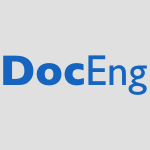 DocEng-2015-FranzeMW #documentation #navigation #question
DocEng-2015-FranzeMW #documentation #navigation #question- Does a Split-View Aid Navigation Within Academic Documents? (JF, KM, MW), pp. 211–214.
 SIGMOD-2015-PantelaI
SIGMOD-2015-PantelaI- One Loop Does Not Fit All (SP, SI), pp. 2073–2074.
 ICSME-2015-KhadkaSKSHJDB #analysis #case study #legacy #what
ICSME-2015-KhadkaSKSHJDB #analysis #case study #legacy #what- Does software modernization deliver what it aimed for? A post modernization analysis of five software modernization case studies (RK, PS, BK, AS, JH, SJ, EvD, MB), pp. 477–486.
 SANER-2015-AmmerlaanVZ #refactoring #why
SANER-2015-AmmerlaanVZ #refactoring #why- Old habits die hard: Why refactoring for understandability does not give immediate benefits (EA, WV, AZ), pp. 504–507.
 SANER-2015-SilvaRVBA #javascript #question
SANER-2015-SilvaRVBA #javascript #question- Does JavaScript software embrace classes? (LS, MR, MTV, AB, NA), pp. 73–82.
 ICALP-v1-2015-FontesJKLLR #communication #complexity
ICALP-v1-2015-FontesJKLLR #communication #complexity- Relative Discrepancy Does not Separate Information and Communication Complexity (LF, RJ, IK, SL, ML, JR), pp. 506–516.
 CHI-2015-BoyDF #question #visualisation
CHI-2015-BoyDF #question #visualisation- Storytelling in Information Visualizations: Does it Engage Users to Explore Data? (JB, FD, JDF), pp. 1449–1458.
 CHI-2015-SpeicherBG #question
CHI-2015-SpeicherBG #question- S.O.S.: Does Your Search Engine Results Page (SERP) Need Help? (MS, AB, MG), pp. 1005–1014.
 HIMI-IKD-2015-KaoW #concept #interface #web
HIMI-IKD-2015-KaoW #concept #interface #web- Narrower Conceptual Scope in the App Than the Web Store Interface — The Size Does It and the Ad Has It (CLK, MYW), pp. 204–214.
 ICML-2015-TewariC #bound #documentation #fault #learning #matter #question #rank
ICML-2015-TewariC #bound #documentation #fault #learning #matter #question #rank- Generalization error bounds for learning to rank: Does the length of document lists matter? (AT, SC), pp. 315–323.
 SEKE-2015-AndoSUWFIOHKSNY #developer #development #experience #fault #how #process #question
SEKE-2015-AndoSUWFIOHKSNY #developer #development #experience #fault #how #process #question- How Does Defect Removal Activity of Developer Vary with Development Experience? (RA, SS, CU, HW, YF, SI, HO, YH, MK, KS, KN, MY), pp. 540–545.
 SAC-2015-PedroLPVI #case study #gamification #learning #women
SAC-2015-PedroLPVI #case study #gamification #learning #women- Does gamification work for boys and girls?: An exploratory study with a virtual learning environment (LZP, AMZL, BGP, JV, SI), pp. 214–219.
 ICSE-v1-2015-HuaKM #automation #editing #question #refactoring
ICSE-v1-2015-HuaKM #automation #editing #question #refactoring- Does Automated Refactoring Obviate Systematic Editing? (LH, MK, KSM), pp. 392–402.
 ICSE-v1-2015-YuBC #approach #fault #multi #testing
ICSE-v1-2015-YuBC #approach #fault #multi #testing- Does the Failing Test Execute a Single or Multiple Faults? An Approach to Classifying Failing Tests (ZY, CB, KYC), pp. 924–935.
 ICSE-v2-2015-JankeBW #education #learning #object-oriented #programming #question
ICSE-v2-2015-JankeBW #education #learning #object-oriented #programming #question- Does Outside-In Teaching Improve the Learning of Object-Oriented Programming? (EJ, PB, SW), pp. 408–417.
 DRR-2014-LundRW #fault #how #multi #question
DRR-2014-LundRW #fault #how #multi #question- How well does multiple OCR error correction generalize? (WBL, EKR, DDW), p. ?–13.
 PODS-2014-Barcelo0V #evaluation #query #question
PODS-2014-Barcelo0V #evaluation #query #question- Does query evaluation tractability help query containment? (PB, MR, MYV), pp. 188–199.
 CSEET-2014-RongZS #case study #education #experience #matter #process
CSEET-2014-RongZS #case study #education #experience #matter #process- Where does experience matter in software process education? An experience report (GR, HZ, DS), pp. 129–138.
 ITiCSE-2014-KothiyalMI #learning #question #scalability
ITiCSE-2014-KothiyalMI #learning #question #scalability- Think-pair-share in a large CS1 class: does learning really happen? (AK, SM, SI), pp. 51–56.
 CSMR-WCRE-2014-KimuraHHIK #matter #null #question
CSMR-WCRE-2014-KimuraHHIK #matter #null #question- Does return null matter? (SK, KH, YH, HI, SK), pp. 244–253.
 ICSME-2014-CachoBAPGCSCFG #behaviour #c# #case study #exception #how #java
ICSME-2014-CachoBAPGCSCFG #behaviour #c# #case study #exception #how #java- How Does Exception Handling Behavior Evolve? An Exploratory Study in Java and C# Applications (NC, EAB, JA, FP, AFG, TC, ES, AC, TF, IG), pp. 31–40.
 ICSME-2014-SahinTMPC #energy #how #obfuscation #question
ICSME-2014-SahinTMPC #energy #how #obfuscation #question- How Does Code Obfuscation Impact Energy Usage? (CS, PT, RM, ZP, JC), pp. 131–140.
 MSR-2014-KochharLL #classification #debugging #locality #question
MSR-2014-KochharLL #classification #debugging #locality #question- It’s not a bug, it’s a feature: does misclassification affect bug localization? (PSK, TDBL, DL), pp. 296–299.
 MSR-2014-TiarksM #development #how #mobile #question #tutorial
MSR-2014-TiarksM #development #how #mobile #question #tutorial- How does a typical tutorial for mobile development look like? (RT, WM), pp. 272–281.
 ICALP-v2-2014-KosowskiP #case study #difference
ICALP-v2-2014-KosowskiP #case study #difference- Does Adding More Agents Make a Difference? A Case Study of Cover Time for the Rotor-Router (AK, DP), pp. 544–555.
 CHI-2014-BrumbyCCF #behaviour #how #question #visual notation #what
CHI-2014-BrumbyCCF #behaviour #how #question #visual notation #what- How does knowing what you are looking for change visual search behavior? (DPB, ALC, JC, BF), pp. 3895–3898.
 CHI-2014-BurszteinMFBMJ
CHI-2014-BurszteinMFBMJ- Easy does it: more usable CAPTCHAs (EB, AM, CF, SB, JCM, DJ), pp. 2637–2646.
 CHI-2014-FigueiredoABG #case study #social #social media
CHI-2014-FigueiredoABG #case study #social #social media- Does content determine information popularity in social media?: a case study of youtube videos’ content and their popularity (FF, JMA, FB, KPG), pp. 979–982.
 DUXU-DP-2014-SpillersA #experience #health #mobile #motivation #social #user interface
DUXU-DP-2014-SpillersA #experience #health #mobile #motivation #social #user interface- Does Social User Experience Improve Motivation for Runners? — A Diary Study Comparing Mobile Health Applications (FS, SA), pp. 358–369.
 HIMI-DE-2014-ShiozuKYS #question
HIMI-DE-2014-ShiozuKYS #question- Does ICT Promote the Private Provision of Local Public Goods? (YS, KK, KY, KS), pp. 629–640.
 LCT-TRE-2014-Jebali #question
LCT-TRE-2014-Jebali #question- Does CMC Reduce Foreign Language Classroom Anxiety? (AJ), pp. 277–287.
 SCSM-2014-TurnerH #network #social #what
SCSM-2014-TurnerH #network #social #what- What Does Your Profile Picture Say About You? The Accuracy of Thin-Slice Personality Judgments from Social Networking Sites Made at Zero-Acquaintance (MT, NH), pp. 506–516.
 CAiSE-2014-BastarricaMRSV #how #process #quality #question
CAiSE-2014-BastarricaMRSV #how #process #quality #question- How does Quality of Formalized Software Processes Affect Adoption? (MCB, GM, RR, LS, RV), pp. 226–240.
 KDD-2014-RamakrishnanW #privacy #question #social
KDD-2014-RamakrishnanW #privacy #question #social- Does social good justify risking personal privacy? (RR, GIW), p. 1965.
 KDIR-2014-SzejdaSC #question #wiki
KDIR-2014-SzejdaSC #question #wiki- Does a “Renaissance Man” Create Good Wikipedia Articles? (JS, MS, DC), pp. 425–430.
 SIGIR-2014-ChenJZBZSY #category theory #recommendation
SIGIR-2014-ChenJZBZSY #category theory #recommendation- Does product recommendation meet its waterloo in unexplored categories?: no, price comes to help (JC, QJ, SZ, SB, LZ, ZS, YY), pp. 667–676.
 ICSE-2014-WagstromD #development #scalability
ICSE-2014-WagstromD #development #scalability- Does latitude hurt while longitude kills? geographical and temporal separation in a large scale software development project (PW, SD), pp. 199–210.
 PPoPP-2014-Rubin #compilation #question #research #what
PPoPP-2014-Rubin #compilation #question #research #what- Heterogeneous computing: what does it mean for compiler research? (NR), pp. 315–316.
 DAC-2013-FariborziCNCHLLS
DAC-2013-FariborziCNCHLLS- Relays do not leak: CMOS does (HF, FC, RN, IRC, LH, RL, TJKL, VS), p. 4.
 ITiCSE-2013-KnoxF #matter #question #why
ITiCSE-2013-KnoxF #matter #question #why- Why does place matter? (DK, SF), pp. 171–176.
 ICSM-2013-ZhangMZKH #how #maintenance #metric #question
ICSM-2013-ZhangMZKH #how #maintenance #metric #question- How Does Context Affect the Distribution of Software Maintainability Metrics? (FZ, AM, YZ, FK, AEH), pp. 350–359.
 MSR-2013-HamasakiKYCFI #bibliography #code review #dataset #repository #what
MSR-2013-HamasakiKYCFI #bibliography #code review #dataset #repository #what- Who does what during a code review? datasets of OSS peer review repositories (KH, RGK, NY, AECC, KF, HI), pp. 49–52.
 CHI-2013-EgelmanSMBH
CHI-2013-EgelmanSMBH- Does my password go up to eleven?: the impact of password meters on password selection (SE, AS, IM, KB, CH), pp. 2379–2388.
 CHI-2013-GibsonH #how #question #women
CHI-2013-GibsonH #how #question #women- Digital motherhood: how does technology help new mothers? (LG, VLH), pp. 313–322.
 CHI-2013-LeeH #consistency #online
CHI-2013-LeeH #consistency #online- Does slacktivism hurt activism?: the effects of moral balancing and consistency in online activism (YHL, GH), pp. 811–820.
 CHI-2013-Mirza-BabaeiNGCF #game studies #how #research #testing
CHI-2013-Mirza-BabaeiNGCF #game studies #how #research #testing- How does it play better?: exploring user testing and biometric storyboards in games user research (PMB, LEN, JG, NC, GF), pp. 1499–1508.
 CHI-2013-RonenRJT #how #question
CHI-2013-RonenRJT #how #question- Taking data exposure into account: how does it affect the choice of sign-in accounts? (SR, OR, MJ, DT), pp. 3423–3426.
 CIKM-2013-GanuM #multi #web
CIKM-2013-GanuM #multi #web- One size does not fit all: multi-granularity search of web forums (GG, AM), pp. 9–18.
 SEKE-2013-Perez-CastilloFPC #how #modelling #process #refactoring
SEKE-2013-Perez-CastilloFPC #how #modelling #process #refactoring- How Does Refactoring Affect Understandability of Business Process Models? (S) (RPC, MFR, MP, DC), pp. 644–649.
 SEKE-2013-WangWMX #analysis #how #performance
SEKE-2013-WangWMX #analysis #how #performance- How Does Acquirer’s Participation Influence Performance of Software Projects: A Quantitative Analysis (S) (YW, JW, JM, BX), pp. 537–541.
 GPCE-2013-SchulzeLSA #empirical #matter #preprocessor
GPCE-2013-SchulzeLSA #empirical #matter #preprocessor- Does the discipline of preprocessor annotations matter?: a controlled experiment (SS, JL, JS, SA), pp. 65–74.
 ICSE-2013-LewisLSZOW #case study #debugging #developer #predict
ICSE-2013-LewisLSZOW #case study #debugging #developer #predict- Does bug prediction support human developers? findings from a google case study (CL, ZL, CS, XZ, RO, EJWJ), pp. 372–381.
 ICSE-2013-Northrop #case study #matter #scalability #years after
ICSE-2013-Northrop #case study #matter #scalability #years after- Does scale really matter? ultra-large-scale systems seven years after the study (keynote) (LMN), p. 857.
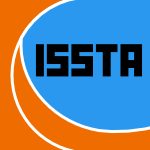 ISSTA-2013-FraserSMAP #automation #generative #question #testing
ISSTA-2013-FraserSMAP #automation #generative #question #testing- Does automated white-box test generation really help software testers? (GF, MS, PM, AA, FP), pp. 291–301.
 MSR-2012-TianALLL #community #microblog #question #re-engineering #what
MSR-2012-TianALLL #community #microblog #question #re-engineering #what- What does software engineering community microblog about? (YT, PA, INL, DL, EPL), pp. 247–250.
 SCAM-2012-BavotaCLPOS #debugging #empirical #refactoring
SCAM-2012-BavotaCLPOS #debugging #empirical #refactoring- When Does a Refactoring Induce Bugs? An Empirical Study (GB, BDC, ADL, MDP, RO, OS), pp. 104–113.
 SCAM-2012-VinjuG #complexity #control flow #metric #what
SCAM-2012-VinjuG #complexity #control flow #metric #what- What Does Control Flow Really Look Like? Eyeballing the Cyclomatic Complexity Metric (JJV, MWG), pp. 154–163.
 ICML-2012-MannorMX #nondeterminism #robust
ICML-2012-MannorMX #nondeterminism #robust- Lightning Does Not Strike Twice: Robust MDPs with Coupled Uncertainty (SM, OM, HX), p. 62.
 ICPR-2012-CheplyginaTL #question
ICPR-2012-CheplyginaTL #question- Does one rotten apple spoil the whole barrel? (VC, DMJT, ML), pp. 1156–1159.
 ICSE-2012-EderJJHVP #how #maintenance #matter #question
ICSE-2012-EderJJHVP #how #maintenance #matter #question- How much does unused code matter for maintenance? (SE, MJ, EJ, BH, RV, KHP), pp. 1102–1111.
 ICSE-2012-InoueSXM #open source
ICSE-2012-InoueSXM #open source- Where does this code come from and where does it go? — Integrated code history tracker for open source systems (KI, YS, PX, YM), pp. 331–341.
 ICSE-2012-PlonkaSL #matter #programming #question
ICSE-2012-PlonkaSL #matter #programming #question- Disengagement in pair programming: Does it matter? (LP, HS, JvdL), pp. 496–506.
 ICSE-2012-Wolff #architecture #industrial #what
ICSE-2012-Wolff #architecture #industrial #what- Software architecture — What does it mean in industry? (Invited industrial talk) (EW), p. 999.
 ICSE-2012-YskoutSJ #architecture #question #security
ICSE-2012-YskoutSJ #architecture #question #security- Does organizing security patterns focus architectural choices? (KY, RS, WJ), pp. 617–627.
 ITiCSE-2011-SettleDD #difference #student
ITiCSE-2011-SettleDD #difference #student- Does lecture capture make a difference for students in traditional classrooms (AS, LD, MJD), pp. 78–82.
 WCRE-2011-CanforaCCP #debugging #empirical #how
WCRE-2011-CanforaCCP #debugging #empirical #how- How Long Does a Bug Survive? An Empirical Study (GC, MC, LC, MDP), pp. 191–200.
 WCRE-2011-GravinoRST #comprehension #design pattern #documentation #source code
WCRE-2011-GravinoRST #comprehension #design pattern #documentation #source code- Does the Documentation of Design Pattern Instances Impact on Source Code Comprehension? Results from Two Controlled Experiments (CG, MR, GS, GT), pp. 67–76.
 DLT-2011-KortelainenS #bound #context-free grammar
DLT-2011-KortelainenS #bound #context-free grammar- There Does Not Exist a Minimal Full Trio with Respect to Bounded Context-Free Languages (JK, TS), pp. 312–323.
 ICALP-v1-2011-JansenS #constant #polynomial
ICALP-v1-2011-JansenS #constant #polynomial- Permanent Does Not Have Succinct Polynomial Size Arithmetic Circuits of Constant Depth (MJJ, RS), pp. 724–735.
 FM-2011-DammF #question
FM-2011-DammF #question- Does It Pay to Extend the Perimeter of a World Model? (WD, BF), pp. 12–26.
 CHI-2011-LinGTMA #identification #people #question
CHI-2011-LinGTMA #identification #people #question- Does domain highlighting help people identify phishing sites? (EL, SG, ET, DM, JA), pp. 2075–2084.
 CHI-2011-LucaFMSHKH #internet #security #visualisation
CHI-2011-LucaFMSHKH #internet #security #visualisation- Does MoodyBoard make internet use more secure?: evaluating an ambient security visualization tool (ADL, BF, MEM, JS, DH, NK, HH), pp. 887–890.
 CHI-2011-SauroL #design #question #usability
CHI-2011-SauroL #design #question #usability- When designing usability questionnaires, does it hurt to be positive? (JS, JRL), pp. 2215–2224.
 DUXU-v2-2011-YasumaN #artificial reality #question
DUXU-v2-2011-YasumaN #artificial reality #question- User Characteristic-Based Information-Providing Service for Museum with Optical See-Through Head-Mounted Display: Does It Evoke Enthusiasm? (YY, MN), pp. 234–242.
 HCI-MIIE-2011-HyrkkanenN #functional #how #identification #mobile #physics #question
HCI-MIIE-2011-HyrkkanenN #functional #how #identification #mobile #physics #question- The Virtual Workplace of a Mobile Employee — How Does Vischer’s Model Function in Identifying Physical, Functional and Psychosocial Fit? (UH, SN), pp. 69–75.
 HIMI-v1-2011-NguyenV #behaviour #online #privacy #question
HIMI-v1-2011-NguyenV #behaviour #online #privacy #question- Does Privacy Information Influence Users’ Online Purchasing Behavior? (JHN, KPLV), pp. 349–358.
 IDGD-2011-LeeY #education #web
IDGD-2011-LeeY #education #web- Does Internationalization Have Its Own Face in Each Country? Measuring the Internationalization of Web Presence on Higher Education Admission Web Pages between USA and Taiwan (JL, MY), pp. 524–532.
 POPL-2011-Leroy #question #tool support
POPL-2011-Leroy #question #tool support- Verified squared: does critical software deserve verified tools? (XL), pp. 1–2.
 REFSQ-2011-PostMP #case study #requirements #strict
REFSQ-2011-PostMP #case study #requirements #strict- Applying Restricted English Grammar on Automotive Requirements — Does it Work? A Case Study (AP, IM, AP), pp. 166–180.
 ESEC-FSE-2011-MeneelyRW #analysis #empirical #quality
ESEC-FSE-2011-MeneelyRW #analysis #empirical #quality- Does adding manpower also affect quality?: an empirical, longitudinal analysis (AM, PR, LW), pp. 81–90.
 ICSE-2011-CurtisSS #evaluation #matter #quality #question
ICSE-2011-CurtisSS #evaluation #matter #quality #question- An evaluation of the internal quality of business applications: does size matter? (BC, JS, JS), pp. 711–715.
 ICSE-2011-ZhouM #developer #future of
ICSE-2011-ZhouM #developer #future of- Does the initial environment impact the future of developers (MZ, AM), pp. 271–280.
 DAC-2010-KuehlmannCCCGGLS #design #in the cloud #question
DAC-2010-KuehlmannCCCGGLS #design #in the cloud #question- Does IC design have a future in the clouds? (AK, RC, JC, JC, SG, RG, PL, DS), pp. 412–414.
 CSMR-2010-NadiHM #predict #set #using
CSMR-2010-NadiHM #predict #set #using- Does the Past Say It All? Using History to Predict Change Sets in a CMDB (SN, RCH, SM), pp. 97–106.
 CHI-2010-AulaKG #behaviour #how #question
CHI-2010-AulaKG #behaviour #how #question- How does search behavior change as search becomes more difficult? (AA, RMK, ZG), pp. 35–44.
 CHI-2010-HeGH #design #energy #feedback
CHI-2010-HeGH #design #energy #feedback- One size does not fit all: applying the transtheoretical model to energy feedback technology design (HAH, SG, EMH), pp. 927–936.
 KDIR-2010-Cucerzan #matter #question #web
KDIR-2010-Cucerzan #matter #question #web- Does Capitalization Matter in Web Search? (SC), pp. 302–306.
 PPoPP-2010-ZhangJS #matter #parallel #performance #question #source code #thread
PPoPP-2010-ZhangJS #matter #parallel #performance #question #source code #thread- Does cache sharing on modern CMP matter to the performance of contemporary multithreaded programs? (EZZ, YJ, XS), pp. 203–212.
 ICST-2010-Arcuri #branch #distance #how #matter #testing
ICST-2010-Arcuri #branch #distance #how #matter #testing- It Does Matter How You Normalise the Branch Distance in Search Based Software Testing (AA), pp. 205–214.
 ICST-2010-SyedRW #fault #hardware #question
ICST-2010-SyedRW #fault #hardware #question- Does Hardware Configuration and Processor Load Impact Software Fault Observability? (RAS, BR, LAW), pp. 285–294.
 MSR-2009-ShinBOW #fault #predict #question
MSR-2009-ShinBOW #fault #predict #question- Does calling structure information improve the accuracy of fault prediction? (YS, RMB, TJO, EJW), pp. 61–70.
 STOC-2009-MontenegroT #how #question
STOC-2009-MontenegroT #how #question- How long does it take to catch a wild kangaroo? (RM, PT), pp. 553–560.
 CHI-2009-GonzalesFD #question
CHI-2009-GonzalesFD #question- (Perceived) interactivity: does interactivity increase enjoyment and creative identity in artistic spaces? (ALG, TF, SPD), pp. 415–418.
 RecSys-2009-NanopoulosRI #collaboration #how #question
RecSys-2009-NanopoulosRI #collaboration #how #question- How does high dimensionality affect collaborative filtering? (AN, MR, MI), pp. 293–296.
 REFSQ-2009-LiRFM #clustering #composition #design #question #requirements
REFSQ-2009-LiRFM #clustering #composition #design #question #requirements- Does Requirements Clustering Lead to Modular Design? (ZL, QAR, RF, NHM), pp. 233–239.
 ICSE-2009-BirdNDGM #case study #development #distributed #empirical #quality
ICSE-2009-BirdNDGM #case study #development #distributed #empirical #quality- Does distributed development affect software quality? An empirical case study of Windows Vista (CB, NN, PTD, HG, BM), pp. 518–528.
 CADE-2009-GregoireMP #question #set
CADE-2009-GregoireMP #question #set- Does This Set of Clauses Overlap with at Least One MUS? (ÉG, BM, CP), pp. 100–115.
 SAT-2009-BeyersdorffM #question
SAT-2009-BeyersdorffM #question- Does Advice Help to Prove Propositional Tautologies? (OB, SM), pp. 65–72.
 ICALP-B-2008-GomezGP #commutative #question
ICALP-B-2008-GomezGP #commutative #question- When Does Partial Commutative Closure Preserve Regularity? (ACG, GG, JÉP), pp. 209–220.
 CSCW-2008-KalnikaiteW #feedback #question #social #speech #summary
CSCW-2008-KalnikaiteW #feedback #question #social #speech #summary- Social summarization: does social feedback improve access to speech data? (VK, SW), pp. 9–12.
 SIGAda-2008-Tokar #question #years after
SIGAda-2008-Tokar #question #years after- 30 years after steelman, does DoD still have a software crisis? (JT), pp. 9–10.
 CIKM-2008-RadlinskiKJ #how #quality #question #retrieval
CIKM-2008-RadlinskiKJ #how #quality #question #retrieval- How does clickthrough data reflect retrieval quality? (FR, MK, TJ), pp. 43–52.
 SIGIR-2008-Al-MaskariSCA #effectiveness #predict #question
SIGIR-2008-Al-MaskariSCA #effectiveness #predict #question- The good and the bad system: does the test collection predict users’ effectiveness? (AAM, MS, PDC, EA), pp. 59–66.
 SIGIR-2008-BaileyCSTVY #assessment #matter
SIGIR-2008-BaileyCSTVY #assessment #matter- Relevance assessment: are judges exchangeable and does it matter (PB, NC, IS, PT, APdV, EY), pp. 667–674.
 SIGIR-2008-MojdehC #question
SIGIR-2008-MojdehC #question- Semi-supervised spam filtering: does it work? (MM, GVC), pp. 745–746.
 REFSQ-2008-ZachosMH #question #requirements #specification #web #web service
REFSQ-2008-ZachosMH #question #requirements #specification #web #web service- Discovering Web Services to Improve Requirements Specifications: Does It Help? (KZ, NAMM, RHM), pp. 168–182.
 SAT-2008-SchederZ #how #question #satisfiability
SAT-2008-SchederZ #how #question #satisfiability- How Many Conflicts Does It Need to Be Unsatisfiable? (DS, PZ), pp. 246–256.
 HT-2007-SteinH #case study #matter #wiki
HT-2007-SteinH #case study #matter #wiki- Does it matter who contributes: a study on featured articles in the german wikipedia (KS, CH), pp. 171–174.
 VLDB-2007-Amer-YahiaH #database #question #web #what
VLDB-2007-Amer-YahiaH #database #question #web #what- What does Web 2.0 have to do with databases? (SAY, AYH), p. 1443.
 ITiCSE-2007-PauHW #experience #how #question #self #women
ITiCSE-2007-PauHW #experience #how #question #self #women- Women in computing: how does experience influence self-perception of computing careers? (RP, WH, SW), p. 349.
 HCI-AS-2007-Shrimpton-SmithZ #design #question #web
HCI-AS-2007-Shrimpton-SmithZ #design #question #web- Does the Web Design Disconnect the Emotional Connection? (TSS, BZ), pp. 1009–1018.
 HCI-IDU-2007-FujimuraSMKSIMOWFT #case study #why
HCI-IDU-2007-FujimuraSMKSIMOWFT #case study #why- Why Does IT Support Enjoyment of Elderly Life? — Case Studies Performed in Japan (KF, HS, TM, KK, KiS, YI, SM, KO, TW, YF, TT), pp. 756–764.
 HCI-IPT-2007-AuerD #difference
HCI-IPT-2007-AuerD #difference- When Does a Difference Make a Difference? A Snapshot on Global Icon Comprehensibility (SA, ED), pp. 3–12.
 HIMI-MTT-2007-Gao #empirical #hypermedia
HIMI-MTT-2007-Gao #empirical #hypermedia- Does Information Content Influence Perceived Informativeness? An Experiment in the Hypermedia (YG), pp. 40–44.
 SIGIR-2007-HuffmanH #how #predict #question
SIGIR-2007-HuffmanH #how #predict #question- How well does result relevance predict session satisfaction? (SBH, MH), pp. 567–574.
 SIGIR-2007-NajorkZT #how #question #web
SIGIR-2007-NajorkZT #how #question #web- Hits on the web: how does it compare? (MN, HZ, MJT), pp. 471–478.
 RE-2007-KamataT #how #quality #question #requirements
RE-2007-KamataT #how #quality #question #requirements- How Does Requirements Quality Relate to Project Success or Failure? (MIK, TT), pp. 69–78.
 ESEC-FSE-2007-FritzMH #process #question
ESEC-FSE-2007-FritzMH #process #question- Does a programmer’s activity indicate knowledge of code? (TF, GCM, EH), pp. 341–350.
 SPLC-2007-TischerMKG #product line #why
SPLC-2007-TischerMKG #product line #why- Why does it take that long? Establishing Product Lines in the Automotive Domain (CT, AM, MK, LG), pp. 269–274.
 ITiCSE-2006-GharibyanG #case study #gender
ITiCSE-2006-GharibyanG #case study #gender- Gender gap in computer science does not exist in one former soviet republic: results of a study (HG, SG), pp. 222–226.
 CIAA-2006-Maletti #question
CIAA-2006-Maletti #question- Does o-Substitution Preserve Recognizability? (AM), pp. 150–161.
 ICPR-v1-2006-BoschMOM #approach #classification #question #what
ICPR-v1-2006-BoschMOM #approach #classification #question #what- Object and Scene Classification: what does a Supervised Approach Provide us? (AB, XM, AO, RM), pp. 773–777.
 ICPR-v4-2006-CheungKZKY #evaluation #perspective
ICPR-v4-2006-CheungKZKY #evaluation #perspective- Does EigenPalm work? A System and Evaluation Perspective (KHC, AWKK, DZ, MK, JY), pp. 445–448.
 SIGIR-2006-Mu #matter #question #retrieval #semantics #video #visual notation
SIGIR-2006-Mu #matter #question #retrieval #semantics #video #visual notation- Content-based video retrieval: does video’s semantic visual feature matter? (XM), pp. 679–680.
 RE-2006-Cleland-Huang #how #question #requirements #traceability
RE-2006-Cleland-Huang #how #question #requirements #traceability- Requirements Traceability — When and How does it Deliver more than it Costs? (JCH), p. 323.
 SAC-2006-ReynosoGPM #comprehension #ocl #question
SAC-2006-ReynosoGPM #comprehension #ocl #question- Does object coupling really affect the understanding and modifying of OCL expressions? (LR, MG, MP, MEM), pp. 1721–1727.
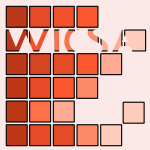 WICSA-2005-Klein #architecture #how #question
WICSA-2005-Klein #architecture #how #question- How Does the Architect’s Role Change as the Software Ages? (JK), p. 141.
 DAC-2005-NandraDMDHLSA
DAC-2005-NandraDMDHLSA- Interconnects are moving from MHz→GHz should you be afraid?: or... “my giga hertz, does yours?” (NN, PD, RM, JFD, AH, BL, JS, JA), pp. 289–290.
 CSMR-2005-BoisDV #comprehension #question #reverse engineering
CSMR-2005-BoisDV #comprehension #question #reverse engineering- Does the “Refactor to Understand” Reverse Engineering Pattern Improve Program Comprehension? (BDB, SD, JV), pp. 334–343.
 DAC-2004-Smith #challenge #design #framework #question
DAC-2004-Smith #challenge #design #framework #question- Platform based design: does it answer the entire SoC challenge? (GS), p. 407.
 DATE-v1-2004-KretzschmarNM #power management #why
DATE-v1-2004-KretzschmarNM #power management #why- Why Transition Coding for Power Minimization of On-Chip Buses Does Not Work (CK, AKN, DM), pp. 512–517.
 SCAM-2004-Krinke #context-sensitive grammar #matter
SCAM-2004-Krinke #context-sensitive grammar #matter- Context-Sensitivity Matters, But Context Does Not (JK), pp. 29–35.
 CIAA-2004-EramianD #complexity #question
CIAA-2004-EramianD #complexity #question- Does Hausdorff Dimension Measure Texture Complexity? (MGE, MD), pp. 317–318.
 CSCW-2004-BarleyDKRKY #question
CSCW-2004-BarleyDKRKY #question- Does CSCW need organization theory? (SRB, WHD, SBK, PR, REK, JY), pp. 122–124.
 ITiCSE-2002-KorhonenMMS #difference #question #student #web
ITiCSE-2002-KorhonenMMS #difference #question #student #web- Does it make a difference if students exercise on the web or in the classroom? (AK, LM, PM, PS), pp. 121–124.
 ICSM-2002-TvedtCL #architecture #design #evaluation #process
ICSM-2002-TvedtCL #architecture #design #evaluation #process- Does the Code Match the Design? A Process for Architecture Evaluation (RTT, PC, ML), pp. 393–401.
 ICPR-v2-2002-AltyncayD #classification #multi #normalisation #problem #question #why
ICPR-v2-2002-AltyncayD #classification #multi #normalisation #problem #question #why- Why Does Output Normalization Create Problems in Multiple Classifier Systems? (HA, MD), pp. 775–778.
 SIGIR-2002-Soboroff #question #web
SIGIR-2002-Soboroff #question #web- Does WT10g look like the web? (IS), pp. 423–424.
 UML-2002-Selic #question
UML-2002-Selic #question- Does Your Software Creak as It Runs? (BS), p. 162.
 ECOOP-2002-KienzleG #aspect-oriented #concurrent #named
ECOOP-2002-KienzleG #aspect-oriented #concurrent #named- AOP: Does It Make Sense? The Case of Concurrency and Failures (JK, RG), pp. 37–61.
 DATE-2001-LockCM #framework #programmable #question
DATE-2001-LockCM #framework #programmable #question- The programmable platform: does one size fit all? (AL, RC, HM), pp. 226–227.
 ICSM-2001-SiyV #question
ICSM-2001-SiyV #question- Does the Modern Code Inspection Have Value? (HPS, LGV), p. 281–?.
 CHI-2001-RoddenBSW #image #question #similarity
CHI-2001-RoddenBSW #image #question #similarity- Does organisation by similarity assist image browsing? (KR, WB, DS, KRW), pp. 190–197.
 SIGIR-2001-Kauwell #internet #question #visualisation
SIGIR-2001-Kauwell #internet #question #visualisation- Does Visualization Improve Our Ability to Find and Learn from Internet Based Information? (DAK, JL, HJY, YJL, JE, AB), p. 453.
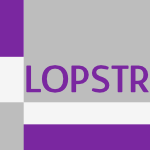 LOPSTR-2001-VanhoofB #matter
LOPSTR-2001-VanhoofB #matter- When Size Does Matter (WV, MB), pp. 129–147.
 ITiCSE-2000-HaganM #experience #programming #question
ITiCSE-2000-HaganM #experience #programming #question- Does it help to have some programming experience before beginning a computing degree program? (DH, SM), pp. 25–28.
 CHI-2000-NassL #speech
CHI-2000-NassL #speech- Does computer-generated speech manifest personality? an experimental test of similarity-attraction (CN, KML), pp. 329–336.
 CSCW-2000-TeasleyCKO #how #question
CSCW-2000-TeasleyCKO #how #question- How does radical collocation help a team succeed? (SDT, LC, MSK, JSO), pp. 339–346.
 ICEIS-2000-MooreICMS #adaptation #what #workflow
ICEIS-2000-MooreICMS #adaptation #what #workflow- Who Does What? Matching Agents to Tasks in Adaptive Workflow (JPM, RI, PWHC, AM, JS), pp. 181–185.
 SIGIR-2000-AmentoTH #documentation #predict #quality #web
SIGIR-2000-AmentoTH #documentation #predict #quality #web- Does “authority” mean quality? predicting expert quality ratings of Web documents (BA, LGT, WCH), pp. 296–303.
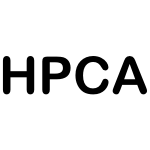 HPCA-2000-BurnsG #layout #question #smt
HPCA-2000-BurnsG #layout #question #smt- Quantifying the SMT Layout Overhead — Does SMT Pull Its Weight? (JB, JLG), pp. 109–120.
 VLDB-1999-AilamakiDHW #question
VLDB-1999-AilamakiDHW #question- DBMSs on a Modern Processor: Where Does Time Go? (AA, DJD, MDH, DAW), pp. 266–277.
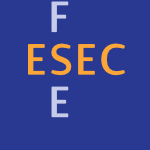 ESEC-FSE-1999-Zeller #question #why
ESEC-FSE-1999-Zeller #question #why- Yesterday, My Program Worked. Today, It Does Not. Why? (AZ), pp. 253–267.
 ITiCSE-1998-LeungN #case study #learning #library #web
ITiCSE-1998-LeungN #case study #learning #library #web- Does World Wide Web provide better resources than library for learning — a case study (poster) (RMWL, EMWN), p. 290.
 ICSE-1998-KoikeC #3d #empirical #how #re-engineering #visualisation
ICSE-1998-KoikeC #3d #empirical #how #re-engineering #visualisation- How Does 3D Visualization Work in Software Engineering? : Empirical Study of a 3D Version/Module Visualization System (HK, HCC), pp. 516–519.
 ITiCSE-1997-Makkonen #collaboration #hypermedia #learning #question
ITiCSE-1997-Makkonen #collaboration #hypermedia #learning #question- Does collaborative hypertext support better engagement in learning of the basics in informatics? (PM), pp. 130–132.
 STOC-1997-GoreJ #process
STOC-1997-GoreJ #process- The Swendsen-Wang Process Does Not Always Mix Rapidly (VG, MJ), pp. 674–681.
 CHI-1997-WilcoxABCC #debugging #feedback #programming #question #visual notation
CHI-1997-WilcoxABCC #debugging #feedback #programming #question #visual notation- Does Continuous Visual Feedback Aid Debugging in Direct-Manipulation Programming Systems? (EMW, JWA, MMB, JJC, CRC), pp. 258–265.
 HCI-CC-1997-TakedaH #question
HCI-CC-1997-TakedaH #question- Does the Circadian Rhythm of VDT Operators Cause Fluctuations of CFF Value that to Mask Fatigue Variations During Work Load? (MT, YH), pp. 563–566.
 KDD-1997-Domingos #why
KDD-1997-Domingos #why- Why Does Bagging Work? A Bayesian Account and its Implications (PMD), pp. 155–158.
 OOPSLA-1997-Alagic #question
OOPSLA-1997-Alagic #question- The ODMG Object Model: Does it Make Sense? (SA), pp. 253–270.
 TOOLS-PACIFIC-1997-BrosLS #java
TOOLS-PACIFIC-1997-BrosLS #java- Java Does not Distribute (GB, KPL, AS), pp. 144–152.
 CHI-1996-Gonzalez #animation #question #user interface
CHI-1996-Gonzalez #animation #question #user interface- Does Animation in User Interfaces Improve Decision Making? (CG), pp. 27–34.
 AdaEurope-1996-GellerichKP #goto #question
AdaEurope-1996-GellerichKP #goto #question- Where Does GOTO Go to? (WG, MK, EP), pp. 385–395.
 ICPR-1996-BhattacharyaCP #segmentation #set
ICPR-1996-BhattacharyaCP #segmentation #set- An MLP-based texture segmentation technique which does not require a feature set (UB, BBC, SKP), pp. 805–809.
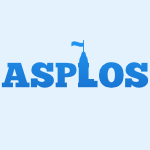 ASPLOS-1994-KaramchetiC #question
ASPLOS-1994-KaramchetiC #question- Software Overhead in Messaging Layers: Where Does the Time Go? (VK, AAC), pp. 51–60.
 FSE-1993-Votta #question
FSE-1993-Votta #question- Does Every Inspection Need a Meeting? (LGV), pp. 107–114.
 HT-ECHT-1992-Rouet #question
HT-ECHT-1992-Rouet #question- Cognitive Processing of Hyperdocuments: When Does Nonlinearity Help? (JFR), pp. 131–140.
 CHI-1990-GillanHARM #how #question
CHI-1990-GillanHARM #how #question- How does Fitts’ law fit pointing and dragging? (DJG, KLH, SA, MR, LM), pp. 227–234.
 KR-1989-Lehmann #knowledge base #question #what
KR-1989-Lehmann #knowledge base #question #what- What Does a Conditional Knowledge Base Entail? (DJL), pp. 212–222.
 ICSE-1989-OhbaC #debugging #question #reliability
ICSE-1989-OhbaC #debugging #question #reliability- Does Imperfect Debugging Affect Software Reliability Growth? (MO, XMC), pp. 237–244.
 ECOOP-1988-MadsenM #object-oriented #programming #what
ECOOP-1988-MadsenM #object-oriented #programming #what- What Object-Oriented Programming May Be — and What It Does Not Have To Be (OLM, BMP), pp. 1–20.
 HCI-CE-1987-Glenn #human-computer #interactive #question #speech
HCI-CE-1987-Glenn #human-computer #interactive #question #speech- Where Does Speech Technology Fit in Human-Computer Interaction? (JWG), pp. 431–438.
 VLDB-1983-VassiliouCJ #how
VLDB-1983-VassiliouCJ #how- How Does an Expert System Get its Data? (Extended Abstract) (YV, JC, MJ), pp. 70–72.
 ILPC-1982-Kurokawa82 #logic programming #re-engineering #what
ILPC-1982-Kurokawa82 #logic programming #re-engineering #what- Logic Programming — What Does it Bring to the Software Engineering (TK), pp. 134–138.
 VLDB-1980-BernsteinG #normalisation #question #what
VLDB-1980-BernsteinG #normalisation #question #what- What does Boyce-Codd Normal Form Do? (PAB, NG), pp. 245–259.
 SIGIR-1978-Williams #documentation #feedback #performance #question #retrieval
SIGIR-1978-Williams #documentation #feedback #performance #question #retrieval- Does Relevance Feedback Improve Document Retrieval Performance? (RLW), pp. 151–170.
 ICALP-1972-Schnorr #programming #question
ICALP-1972-Schnorr #programming #question- Does the Computational Speed-up Concern Programming? (CPS), pp. 585–591.
 DocEng-2015-FranzeMW #documentation #navigation #question
DocEng-2015-FranzeMW #documentation #navigation #question SIGMOD-2015-PantelaI
SIGMOD-2015-PantelaI ICSME-2015-KhadkaSKSHJDB #analysis #case study #legacy #what
ICSME-2015-KhadkaSKSHJDB #analysis #case study #legacy #what SANER-2015-AmmerlaanVZ #refactoring #why
SANER-2015-AmmerlaanVZ #refactoring #why SANER-2015-SilvaRVBA #javascript #question
SANER-2015-SilvaRVBA #javascript #question ICALP-v1-2015-FontesJKLLR #communication #complexity
ICALP-v1-2015-FontesJKLLR #communication #complexity CHI-2015-BoyDF #question #visualisation
CHI-2015-BoyDF #question #visualisation CHI-2015-SpeicherBG #question
CHI-2015-SpeicherBG #question HIMI-IKD-2015-KaoW #concept #interface #web
HIMI-IKD-2015-KaoW #concept #interface #web ICML-2015-TewariC #bound #documentation #fault #learning #matter #question #rank
ICML-2015-TewariC #bound #documentation #fault #learning #matter #question #rank SEKE-2015-AndoSUWFIOHKSNY #developer #development #experience #fault #how #process #question
SEKE-2015-AndoSUWFIOHKSNY #developer #development #experience #fault #how #process #question SAC-2015-PedroLPVI #case study #gamification #learning #women
SAC-2015-PedroLPVI #case study #gamification #learning #women ICSE-v1-2015-HuaKM #automation #editing #question #refactoring
ICSE-v1-2015-HuaKM #automation #editing #question #refactoring ICSE-v1-2015-YuBC #approach #fault #multi #testing
ICSE-v1-2015-YuBC #approach #fault #multi #testing ICSE-v2-2015-JankeBW #education #learning #object-oriented #programming #question
ICSE-v2-2015-JankeBW #education #learning #object-oriented #programming #question DRR-2014-LundRW #fault #how #multi #question
DRR-2014-LundRW #fault #how #multi #question PODS-2014-Barcelo0V #evaluation #query #question
PODS-2014-Barcelo0V #evaluation #query #question CSEET-2014-RongZS #case study #education #experience #matter #process
CSEET-2014-RongZS #case study #education #experience #matter #process ITiCSE-2014-KothiyalMI #learning #question #scalability
ITiCSE-2014-KothiyalMI #learning #question #scalability CSMR-WCRE-2014-KimuraHHIK #matter #null #question
CSMR-WCRE-2014-KimuraHHIK #matter #null #question ICSME-2014-CachoBAPGCSCFG #behaviour #c# #case study #exception #how #java
ICSME-2014-CachoBAPGCSCFG #behaviour #c# #case study #exception #how #java ICSME-2014-SahinTMPC #energy #how #obfuscation #question
ICSME-2014-SahinTMPC #energy #how #obfuscation #question MSR-2014-KochharLL #classification #debugging #locality #question
MSR-2014-KochharLL #classification #debugging #locality #question MSR-2014-TiarksM #development #how #mobile #question #tutorial
MSR-2014-TiarksM #development #how #mobile #question #tutorial ICALP-v2-2014-KosowskiP #case study #difference
ICALP-v2-2014-KosowskiP #case study #difference CHI-2014-BrumbyCCF #behaviour #how #question #visual notation #what
CHI-2014-BrumbyCCF #behaviour #how #question #visual notation #what CHI-2014-BurszteinMFBMJ
CHI-2014-BurszteinMFBMJ CHI-2014-FigueiredoABG #case study #social #social media
CHI-2014-FigueiredoABG #case study #social #social media DUXU-DP-2014-SpillersA #experience #health #mobile #motivation #social #user interface
DUXU-DP-2014-SpillersA #experience #health #mobile #motivation #social #user interface HIMI-DE-2014-ShiozuKYS #question
HIMI-DE-2014-ShiozuKYS #question LCT-TRE-2014-Jebali #question
LCT-TRE-2014-Jebali #question SCSM-2014-TurnerH #network #social #what
SCSM-2014-TurnerH #network #social #what CAiSE-2014-BastarricaMRSV #how #process #quality #question
CAiSE-2014-BastarricaMRSV #how #process #quality #question KDD-2014-RamakrishnanW #privacy #question #social
KDD-2014-RamakrishnanW #privacy #question #social KDIR-2014-SzejdaSC #question #wiki
KDIR-2014-SzejdaSC #question #wiki SIGIR-2014-ChenJZBZSY #category theory #recommendation
SIGIR-2014-ChenJZBZSY #category theory #recommendation ICSE-2014-WagstromD #development #scalability
ICSE-2014-WagstromD #development #scalability PPoPP-2014-Rubin #compilation #question #research #what
PPoPP-2014-Rubin #compilation #question #research #what DAC-2013-FariborziCNCHLLS
DAC-2013-FariborziCNCHLLS ITiCSE-2013-KnoxF #matter #question #why
ITiCSE-2013-KnoxF #matter #question #why ICSM-2013-ZhangMZKH #how #maintenance #metric #question
ICSM-2013-ZhangMZKH #how #maintenance #metric #question MSR-2013-HamasakiKYCFI #bibliography #code review #dataset #repository #what
MSR-2013-HamasakiKYCFI #bibliography #code review #dataset #repository #what CHI-2013-EgelmanSMBH
CHI-2013-EgelmanSMBH CHI-2013-GibsonH #how #question #women
CHI-2013-GibsonH #how #question #women CHI-2013-LeeH #consistency #online
CHI-2013-LeeH #consistency #online CHI-2013-Mirza-BabaeiNGCF #game studies #how #research #testing
CHI-2013-Mirza-BabaeiNGCF #game studies #how #research #testing CHI-2013-RonenRJT #how #question
CHI-2013-RonenRJT #how #question CIKM-2013-GanuM #multi #web
CIKM-2013-GanuM #multi #web SEKE-2013-Perez-CastilloFPC #how #modelling #process #refactoring
SEKE-2013-Perez-CastilloFPC #how #modelling #process #refactoring SEKE-2013-WangWMX #analysis #how #performance
SEKE-2013-WangWMX #analysis #how #performance GPCE-2013-SchulzeLSA #empirical #matter #preprocessor
GPCE-2013-SchulzeLSA #empirical #matter #preprocessor ICSE-2013-LewisLSZOW #case study #debugging #developer #predict
ICSE-2013-LewisLSZOW #case study #debugging #developer #predict ICSE-2013-Northrop #case study #matter #scalability #years after
ICSE-2013-Northrop #case study #matter #scalability #years after ISSTA-2013-FraserSMAP #automation #generative #question #testing
ISSTA-2013-FraserSMAP #automation #generative #question #testing MSR-2012-TianALLL #community #microblog #question #re-engineering #what
MSR-2012-TianALLL #community #microblog #question #re-engineering #what SCAM-2012-BavotaCLPOS #debugging #empirical #refactoring
SCAM-2012-BavotaCLPOS #debugging #empirical #refactoring SCAM-2012-VinjuG #complexity #control flow #metric #what
SCAM-2012-VinjuG #complexity #control flow #metric #what ICML-2012-MannorMX #nondeterminism #robust
ICML-2012-MannorMX #nondeterminism #robust ICPR-2012-CheplyginaTL #question
ICPR-2012-CheplyginaTL #question ICSE-2012-EderJJHVP #how #maintenance #matter #question
ICSE-2012-EderJJHVP #how #maintenance #matter #question ICSE-2012-InoueSXM #open source
ICSE-2012-InoueSXM #open source ICSE-2012-PlonkaSL #matter #programming #question
ICSE-2012-PlonkaSL #matter #programming #question ICSE-2012-Wolff #architecture #industrial #what
ICSE-2012-Wolff #architecture #industrial #what ICSE-2012-YskoutSJ #architecture #question #security
ICSE-2012-YskoutSJ #architecture #question #security ITiCSE-2011-SettleDD #difference #student
ITiCSE-2011-SettleDD #difference #student WCRE-2011-CanforaCCP #debugging #empirical #how
WCRE-2011-CanforaCCP #debugging #empirical #how WCRE-2011-GravinoRST #comprehension #design pattern #documentation #source code
WCRE-2011-GravinoRST #comprehension #design pattern #documentation #source code DLT-2011-KortelainenS #bound #context-free grammar
DLT-2011-KortelainenS #bound #context-free grammar ICALP-v1-2011-JansenS #constant #polynomial
ICALP-v1-2011-JansenS #constant #polynomial FM-2011-DammF #question
FM-2011-DammF #question CHI-2011-LinGTMA #identification #people #question
CHI-2011-LinGTMA #identification #people #question CHI-2011-LucaFMSHKH #internet #security #visualisation
CHI-2011-LucaFMSHKH #internet #security #visualisation CHI-2011-SauroL #design #question #usability
CHI-2011-SauroL #design #question #usability DUXU-v2-2011-YasumaN #artificial reality #question
DUXU-v2-2011-YasumaN #artificial reality #question HCI-MIIE-2011-HyrkkanenN #functional #how #identification #mobile #physics #question
HCI-MIIE-2011-HyrkkanenN #functional #how #identification #mobile #physics #question HIMI-v1-2011-NguyenV #behaviour #online #privacy #question
HIMI-v1-2011-NguyenV #behaviour #online #privacy #question IDGD-2011-LeeY #education #web
IDGD-2011-LeeY #education #web POPL-2011-Leroy #question #tool support
POPL-2011-Leroy #question #tool support REFSQ-2011-PostMP #case study #requirements #strict
REFSQ-2011-PostMP #case study #requirements #strict ESEC-FSE-2011-MeneelyRW #analysis #empirical #quality
ESEC-FSE-2011-MeneelyRW #analysis #empirical #quality ICSE-2011-CurtisSS #evaluation #matter #quality #question
ICSE-2011-CurtisSS #evaluation #matter #quality #question ICSE-2011-ZhouM #developer #future of
ICSE-2011-ZhouM #developer #future of DAC-2010-KuehlmannCCCGGLS #design #in the cloud #question
DAC-2010-KuehlmannCCCGGLS #design #in the cloud #question CSMR-2010-NadiHM #predict #set #using
CSMR-2010-NadiHM #predict #set #using CHI-2010-AulaKG #behaviour #how #question
CHI-2010-AulaKG #behaviour #how #question CHI-2010-HeGH #design #energy #feedback
CHI-2010-HeGH #design #energy #feedback KDIR-2010-Cucerzan #matter #question #web
KDIR-2010-Cucerzan #matter #question #web PPoPP-2010-ZhangJS #matter #parallel #performance #question #source code #thread
PPoPP-2010-ZhangJS #matter #parallel #performance #question #source code #thread ICST-2010-Arcuri #branch #distance #how #matter #testing
ICST-2010-Arcuri #branch #distance #how #matter #testing ICST-2010-SyedRW #fault #hardware #question
ICST-2010-SyedRW #fault #hardware #question MSR-2009-ShinBOW #fault #predict #question
MSR-2009-ShinBOW #fault #predict #question STOC-2009-MontenegroT #how #question
STOC-2009-MontenegroT #how #question CHI-2009-GonzalesFD #question
CHI-2009-GonzalesFD #question RecSys-2009-NanopoulosRI #collaboration #how #question
RecSys-2009-NanopoulosRI #collaboration #how #question REFSQ-2009-LiRFM #clustering #composition #design #question #requirements
REFSQ-2009-LiRFM #clustering #composition #design #question #requirements ICSE-2009-BirdNDGM #case study #development #distributed #empirical #quality
ICSE-2009-BirdNDGM #case study #development #distributed #empirical #quality CADE-2009-GregoireMP #question #set
CADE-2009-GregoireMP #question #set SAT-2009-BeyersdorffM #question
SAT-2009-BeyersdorffM #question ICALP-B-2008-GomezGP #commutative #question
ICALP-B-2008-GomezGP #commutative #question CSCW-2008-KalnikaiteW #feedback #question #social #speech #summary
CSCW-2008-KalnikaiteW #feedback #question #social #speech #summary SIGAda-2008-Tokar #question #years after
SIGAda-2008-Tokar #question #years after CIKM-2008-RadlinskiKJ #how #quality #question #retrieval
CIKM-2008-RadlinskiKJ #how #quality #question #retrieval SIGIR-2008-Al-MaskariSCA #effectiveness #predict #question
SIGIR-2008-Al-MaskariSCA #effectiveness #predict #question SIGIR-2008-BaileyCSTVY #assessment #matter
SIGIR-2008-BaileyCSTVY #assessment #matter SIGIR-2008-MojdehC #question
SIGIR-2008-MojdehC #question REFSQ-2008-ZachosMH #question #requirements #specification #web #web service
REFSQ-2008-ZachosMH #question #requirements #specification #web #web service SAT-2008-SchederZ #how #question #satisfiability
SAT-2008-SchederZ #how #question #satisfiability HT-2007-SteinH #case study #matter #wiki
HT-2007-SteinH #case study #matter #wiki VLDB-2007-Amer-YahiaH #database #question #web #what
VLDB-2007-Amer-YahiaH #database #question #web #what ITiCSE-2007-PauHW #experience #how #question #self #women
ITiCSE-2007-PauHW #experience #how #question #self #women HCI-AS-2007-Shrimpton-SmithZ #design #question #web
HCI-AS-2007-Shrimpton-SmithZ #design #question #web HCI-IDU-2007-FujimuraSMKSIMOWFT #case study #why
HCI-IDU-2007-FujimuraSMKSIMOWFT #case study #why HCI-IPT-2007-AuerD #difference
HCI-IPT-2007-AuerD #difference HIMI-MTT-2007-Gao #empirical #hypermedia
HIMI-MTT-2007-Gao #empirical #hypermedia SIGIR-2007-HuffmanH #how #predict #question
SIGIR-2007-HuffmanH #how #predict #question SIGIR-2007-NajorkZT #how #question #web
SIGIR-2007-NajorkZT #how #question #web RE-2007-KamataT #how #quality #question #requirements
RE-2007-KamataT #how #quality #question #requirements ESEC-FSE-2007-FritzMH #process #question
ESEC-FSE-2007-FritzMH #process #question SPLC-2007-TischerMKG #product line #why
SPLC-2007-TischerMKG #product line #why ITiCSE-2006-GharibyanG #case study #gender
ITiCSE-2006-GharibyanG #case study #gender CIAA-2006-Maletti #question
CIAA-2006-Maletti #question ICPR-v1-2006-BoschMOM #approach #classification #question #what
ICPR-v1-2006-BoschMOM #approach #classification #question #what ICPR-v4-2006-CheungKZKY #evaluation #perspective
ICPR-v4-2006-CheungKZKY #evaluation #perspective SIGIR-2006-Mu #matter #question #retrieval #semantics #video #visual notation
SIGIR-2006-Mu #matter #question #retrieval #semantics #video #visual notation RE-2006-Cleland-Huang #how #question #requirements #traceability
RE-2006-Cleland-Huang #how #question #requirements #traceability SAC-2006-ReynosoGPM #comprehension #ocl #question
SAC-2006-ReynosoGPM #comprehension #ocl #question WICSA-2005-Klein #architecture #how #question
WICSA-2005-Klein #architecture #how #question DAC-2005-NandraDMDHLSA
DAC-2005-NandraDMDHLSA CSMR-2005-BoisDV #comprehension #question #reverse engineering
CSMR-2005-BoisDV #comprehension #question #reverse engineering DAC-2004-Smith #challenge #design #framework #question
DAC-2004-Smith #challenge #design #framework #question DATE-v1-2004-KretzschmarNM #power management #why
DATE-v1-2004-KretzschmarNM #power management #why SCAM-2004-Krinke #context-sensitive grammar #matter
SCAM-2004-Krinke #context-sensitive grammar #matter CIAA-2004-EramianD #complexity #question
CIAA-2004-EramianD #complexity #question CSCW-2004-BarleyDKRKY #question
CSCW-2004-BarleyDKRKY #question ITiCSE-2002-KorhonenMMS #difference #question #student #web
ITiCSE-2002-KorhonenMMS #difference #question #student #web ICSM-2002-TvedtCL #architecture #design #evaluation #process
ICSM-2002-TvedtCL #architecture #design #evaluation #process ICPR-v2-2002-AltyncayD #classification #multi #normalisation #problem #question #why
ICPR-v2-2002-AltyncayD #classification #multi #normalisation #problem #question #why SIGIR-2002-Soboroff #question #web
SIGIR-2002-Soboroff #question #web UML-2002-Selic #question
UML-2002-Selic #question ECOOP-2002-KienzleG #aspect-oriented #concurrent #named
ECOOP-2002-KienzleG #aspect-oriented #concurrent #named DATE-2001-LockCM #framework #programmable #question
DATE-2001-LockCM #framework #programmable #question ICSM-2001-SiyV #question
ICSM-2001-SiyV #question CHI-2001-RoddenBSW #image #question #similarity
CHI-2001-RoddenBSW #image #question #similarity SIGIR-2001-Kauwell #internet #question #visualisation
SIGIR-2001-Kauwell #internet #question #visualisation LOPSTR-2001-VanhoofB #matter
LOPSTR-2001-VanhoofB #matter ITiCSE-2000-HaganM #experience #programming #question
ITiCSE-2000-HaganM #experience #programming #question CHI-2000-NassL #speech
CHI-2000-NassL #speech CSCW-2000-TeasleyCKO #how #question
CSCW-2000-TeasleyCKO #how #question ICEIS-2000-MooreICMS #adaptation #what #workflow
ICEIS-2000-MooreICMS #adaptation #what #workflow SIGIR-2000-AmentoTH #documentation #predict #quality #web
SIGIR-2000-AmentoTH #documentation #predict #quality #web HPCA-2000-BurnsG #layout #question #smt
HPCA-2000-BurnsG #layout #question #smt VLDB-1999-AilamakiDHW #question
VLDB-1999-AilamakiDHW #question ESEC-FSE-1999-Zeller #question #why
ESEC-FSE-1999-Zeller #question #why ITiCSE-1998-LeungN #case study #learning #library #web
ITiCSE-1998-LeungN #case study #learning #library #web ICSE-1998-KoikeC #3d #empirical #how #re-engineering #visualisation
ICSE-1998-KoikeC #3d #empirical #how #re-engineering #visualisation ITiCSE-1997-Makkonen #collaboration #hypermedia #learning #question
ITiCSE-1997-Makkonen #collaboration #hypermedia #learning #question STOC-1997-GoreJ #process
STOC-1997-GoreJ #process CHI-1997-WilcoxABCC #debugging #feedback #programming #question #visual notation
CHI-1997-WilcoxABCC #debugging #feedback #programming #question #visual notation HCI-CC-1997-TakedaH #question
HCI-CC-1997-TakedaH #question KDD-1997-Domingos #why
KDD-1997-Domingos #why OOPSLA-1997-Alagic #question
OOPSLA-1997-Alagic #question TOOLS-PACIFIC-1997-BrosLS #java
TOOLS-PACIFIC-1997-BrosLS #java CHI-1996-Gonzalez #animation #question #user interface
CHI-1996-Gonzalez #animation #question #user interface AdaEurope-1996-GellerichKP #goto #question
AdaEurope-1996-GellerichKP #goto #question ICPR-1996-BhattacharyaCP #segmentation #set
ICPR-1996-BhattacharyaCP #segmentation #set ASPLOS-1994-KaramchetiC #question
ASPLOS-1994-KaramchetiC #question FSE-1993-Votta #question
FSE-1993-Votta #question HT-ECHT-1992-Rouet #question
HT-ECHT-1992-Rouet #question CHI-1990-GillanHARM #how #question
CHI-1990-GillanHARM #how #question KR-1989-Lehmann #knowledge base #question #what
KR-1989-Lehmann #knowledge base #question #what ICSE-1989-OhbaC #debugging #question #reliability
ICSE-1989-OhbaC #debugging #question #reliability ECOOP-1988-MadsenM #object-oriented #programming #what
ECOOP-1988-MadsenM #object-oriented #programming #what HCI-CE-1987-Glenn #human-computer #interactive #question #speech
HCI-CE-1987-Glenn #human-computer #interactive #question #speech VLDB-1983-VassiliouCJ #how
VLDB-1983-VassiliouCJ #how ILPC-1982-Kurokawa82 #logic programming #re-engineering #what
ILPC-1982-Kurokawa82 #logic programming #re-engineering #what VLDB-1980-BernsteinG #normalisation #question #what
VLDB-1980-BernsteinG #normalisation #question #what SIGIR-1978-Williams #documentation #feedback #performance #question #retrieval
SIGIR-1978-Williams #documentation #feedback #performance #question #retrieval ICALP-1972-Schnorr #programming #question
ICALP-1972-Schnorr #programming #question









